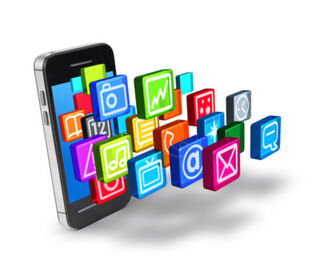Health
10 Things to Consider When Selecting Mental Health Apps
Mental health apps can be helpful, but they don't replace professional help.
Posted August 15, 2022 Reviewed by Devon Frye
There are a gazillion apps for just about everything. There are an estimated 165,000 health-related apps and more than 10,000 are focused on mental health issues.
Let’s explore 10 questions you may want to consider as you think about selecting and trying out mental health apps.

1. Will mental health apps help everyone who uses them?
No—but then nothing helps everyone. Responses vary to apps just as they do to other options for mental health care, including therapy, medication, and changing habits and behaviors. But this also doesn’t mean apps are unhelpful across the board.
2. Is there research to show the effectiveness of mental health apps?
Most commercial mental health apps have not been formally evaluated and some may even be harmful. It’s a rare exception to find rigorous research that has investigated the effectiveness of a mental health app.
3. So how do you figure out which mental health apps have been shown to be effective?
It’s very hard to determine unless the app cites systematic research that supports its claims. Another reasonable option is to ask a mental health professional to suggest apps they have found to be consistently helpful in their clinical practice. Relying on personal online app reviews is not recommended.
4. Are mental health apps a substitute for professionally guided therapy?
Definitely not. Apps are just apps; they’re not mental health professionals.
5. Can mental health apps be used as a self-help tool or as a supplement to therapy?
Yes. Apps are frequently used as self-help measures. And many therapists now assign apps as a supplemental “homework” activity for use between therapy sessions.
6. Should I tell my therapist what apps I am considering or using?
Yes. This way, your therapist can provide guidance and feedback as you use the apps, as well as steer you toward apps that have better research support for their effectiveness.
7. Are mental health apps expensive?
Generally, no. Many are free and some charge a small fee.
8. What potential advantages do mental health apps offer?
They are easy to obtain, readily accessible anywhere (on your mobile devices), low-cost, easy to use, and cover a wide range of topics and concerns.
9. What privacy and security concerns should be considered when using mental health apps?
Does the app collect personal information about you? If so, where does it go and how is it used (research, mailing lists)? Does the app track your location? Does it meet Federal health care standards (e.g., HIPAA) for storing your personal health information?
10. What goals are reasonable when using mental health apps?
In other words, what are you looking for in a mental health app? Some help you track your mood, others allow you to log behaviors or habits you are trying to establish or reduce, and some can help you learn new coping skills. Think about which of these features are important to you as you consider possible apps to try out.
Apps can be a useful resource as one part of your overall mental health toolbox. If you're interested, it may be valuable to try out a few and see if you find them helpful.
Copyright David Susman 2022


